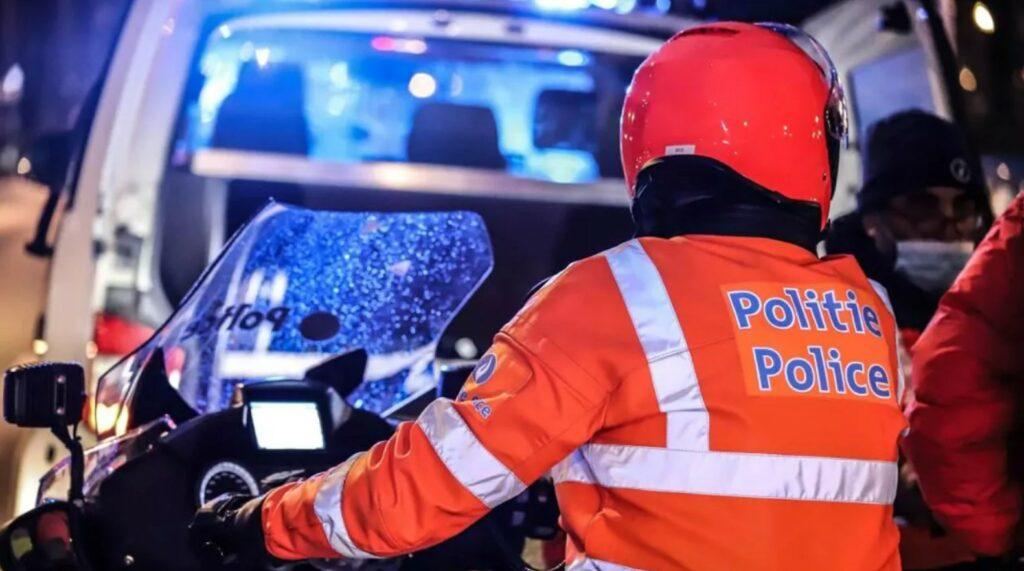A total of 19 shootings have so far been registered in the Brussels Capital Region in 2023, preliminary figures showed. While this figure is high, it remains lower than figures for 2022.
From a shooting during a turbulent night in April to people drawing guns at each other during wedding celebrations, incidents involving guns are not unheard of in the capital region, especially in the Brussels municipality of Molenbeek-Saint-Jean.
In the latest such incident last month, one house was the target of gunfire twice in one weekend. The property was shot at in the early hours of Saturday and then again on Sunday morning. While no injuries were sustained, several bullets landed in the living room of an elderly couple, who lived next door to the attacked home and were present at the time of the second shooting.
In light of the violence, Brussels MP Mathias Vanden Borre (N-VA) called on the region's Minister-President Rudi Vervoort to give details on the scale of the problem. He argued that statistics regarding such incidents, especially when related to drug crime, are not always clear.
Drug war from Antwerp
In response, Vervoort noted that the Brussels police have kept figures on the number of shootings on public roads or in publicly accessible places in the region since 2021. These are based on the official reports of the local police zones. Since September 2022, these reports were expanded to include reporting on drug-related violence.
Law enforcement has remarked on a rise in attacks using violent weapons in the last five years, especially with explosives. Police put this down to the rise in drug trafficking in Belgium, which has spread to Brussels from Antwerp. "The general perception of the police does seem to be that drug violence has increased in severity across the country," Vervoort noted.

Archive image of police at night. Credit: Thierry Roge / Belga
But Vervoort acknowledged that further investigations are needed to ascertain the link with organised crime. "No complete figures on serious drug-related violence are currently available for either the country or the region."
Despite the lack of clarity, Vanden Borre asserts that the shootings are related to "gangs" fighting over neighbourhoods such as Saint-Gilles, Forest and Cureghem. Meanwhile, several shootings are being registered each month by the police in the region: in the first three months of the year eight shootings took place.
Several steps taken, but not enough?
At the current rate, there will be fewer shootings (39) than registered last year, in which a record number of 46 shootings took place in the Brussels region. Last year, gun violence was worst in the City of Brussels, Molenbeek, and Anderlecht, each municipality seeing 10 shootings.
Home Affairs Minister Annelies Verlinden requested the Brussels police to draw up a Brussels "drugs plan" last year based on prevention, information, police response, multidisciplinary approach, partnerships and training. The plan is still being set out by a number of working groups.
In the meantime the so-called "Canal Plan" was revised to tackle current challenges of radicalisation and terrorism in certain areas of the Brussels-Capital Region. This focuses on local administration, the judicial system, and information management to identify probable incidents before they occur.
However, critics say the plan has been hampered by a lack of police recruitments – only 34 of the promised 88 full-time equivalents so far been added to the ranks of the federal judicial police in Brussels.
Related News
- Person injured following shooting in Schaerbeek
- Death of Nahel: Brussels police accused of racial profiling in 'preventive' arrests
Vervoort cited the 'Crimorg' knowledge centre, which is being compiled to improve prevention. The Federal Government is currently considering a law to give local authorities more clout in tackling organised crime structures.
While these various steps were welcomed by Vanden Borre, he stressed that no more time can be wasted: "I have been asking for years for an approach to the escalating drug problems in Brussels. This is the first time there is now talk of a drugs plan," he told The Brussels Times. "This is a positive move but I do not yet know what it will contain."
He added that there is a desperate need to strengthen the prosecutor's office and the judiciary to deal with a growing number of cases, and a simplification and better cooperation between local police, among other measures.

